In Wuhan, the Chinese city from which the coronavirus pandemic started, wet markets reopen after a blockade that lasted over 70 days.
He is about to end up run over, his mother saves himIn Wuhan, the Chinese city from which the coronavirus pandemic started, wet markets reopen after a blockade that lasted over 70 days. We are back to normal but with some differences: at the entrance to the discussed markets there are signs: “No slaughter and sale of live animals”.
Images of men, women and children barefoot and sitting on the ground slaughtering dogs, cats, bats, chickens, crocodiles, pangolins and other wildlife have traveled around the world. After the investigation by Animal Equality, the United Nations also intervened to ask for the stop of the so-called wet markets, which take their name from the blood and water that wet the floors of the stalls with the remains of animals brutally killed on the place for customers who consider that meat "fresh".
Now the end of the lockdown shows a changed city. Commercial activities begin to reopen and therefore also the markets. According to a Bloomberg investigation, the Wuhan fish market, where the new coronavirus originated, will still remain closed and dismantling is expected, but other analogues are returning to activity, albeit apparently without wild animals. In fact, there would be signs at the entrance saying: "No slaughter and sale of live animals".
But all this suggests that it is a provisional measure and that slowly we are returning to the sad custom. The Asian authorities have never denied that these markets are an essential part of their lives. Baishazhou and other wet markets have been at the center of the debate for years, yet the situation is still the same: not only wild animals slaughtered in poor sanitation conditions, but also risks to human health.
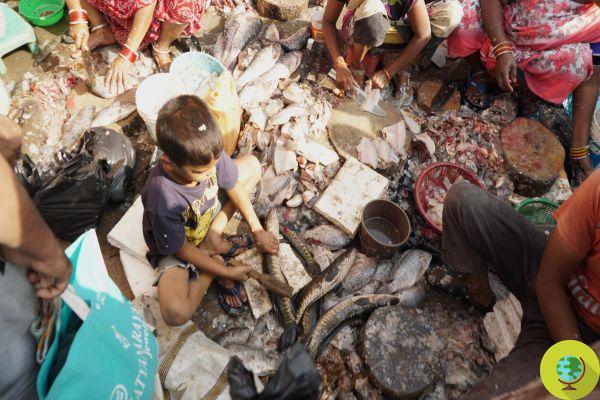
©Animal equality
"Banning wet markets will not only be impossible, it will also be destructive to food security in China as they play a vital role in ensuring access to affordable and healthy food," said Zhenzhong Si, an associate researcher at the University of Waterloo studying food safety in China at Bloomberg.
The coronavirus, which has now infected more than 1,4 million people worldwide, was first discovered in December after a few cases linked to the Wuhan City Seafood Wholesale Market, but on that again. there is no absolute certainty. What is certainly a fact is that the storage in cramped cages of exotic animals raised for food creates the perfect ground for the proliferation of zoonotic diseases.
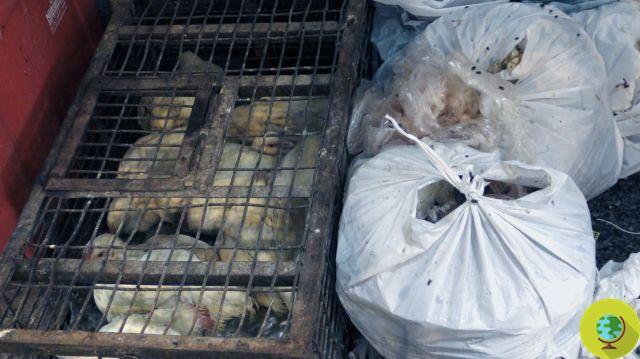
©Animal equality
This would certainly not be the first time a deadly virus has been linked to the trade and consumption of live animals: H1N1 flu (Swine flu) and Middle East Respiratory Syndrome (MERS) are two other examples of viruses that likely have had origin in animals and then pass to humans, causing dangerous epidemics ”, explained Animal equality by launching a campaign to close the wet markets.
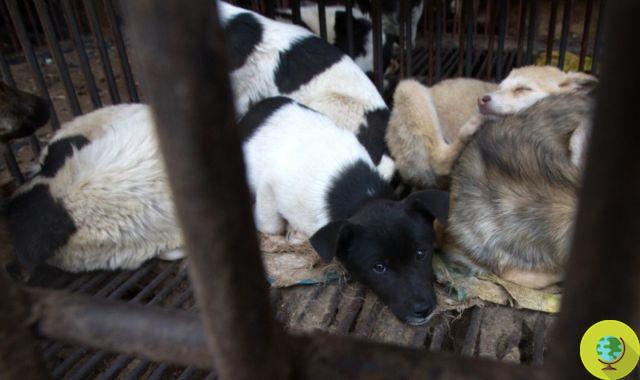
©Animal equality
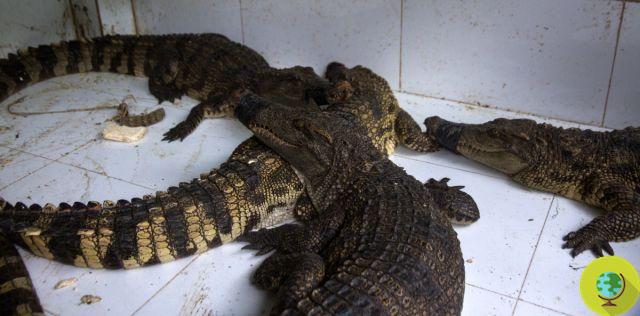
©Animal equality
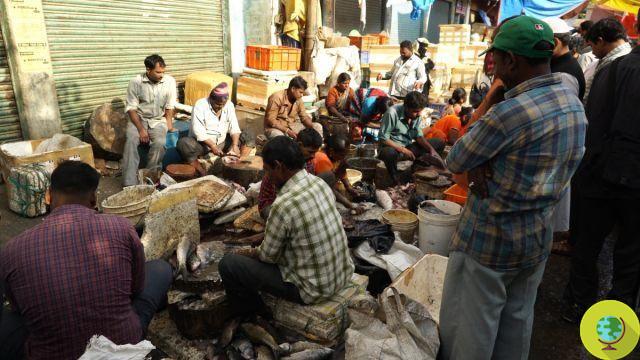
©Animal equality
An appeal that, as we said, was also re-launched by the United Nations. In January, the National Health Commission in China issued a temporary emergency order explaining that markets should be managed in hygienic conditions and avoiding the entry of wild animals and live poultry inside. But according to Si: “it is misleading to focus on the wet markets. The real problem lies in the supply of wild animals. We shouldn't demonize wet markets because of the coronavirus ".
SIGN THE PETITION HERE
Photos: Bloomberg
Read also:
- Stop Wet Market! Now the UN is also calling for a worldwide ban on wet markets
- We close the wet markets forever! The petition with the shocking images of Asian wet markets
- Coronavirus: There are also Australian koalas among the animals sold in the wet market outbreak of the virus


























